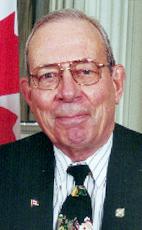Mr. Speaker, I have listened with great interest to my colleagues' comments. Having worked with most of them on the aboriginal committee, I know from whence they come and I know they are genuine in their statements.
However, we are dealing with a separate piece of legislation that has the purpose of making an agreement with the Norway House Cree so that they can get on with the business of running their community, of getting the land they are entitled to and the compensation they have been denied by a long and cumbersome process that started in 1977.
This is, in miniature, what my colleague from Saint-Jean talked about regarding the Nass Valley. I too was there the week before last to honour the opening of the new legislative building of the Nisga'a, who worked for 120 years to get to that point.
The bill deals with an agreement made with the fourth of five first nations affected by the Manitoba northern flood agreement. The reason we have this agreement is that the other one does not work very well, because it allows for the kind of thing my colleagues across the hall have deplored. It allows for confrontations in court. It is costly and inefficient.
In order to get around this stumbling block, the parties, including Manitoba, Manitoba Hydro, Canada and the northern flood committee, have come up with a way of negotiating an implementation agreement with each first nation individually.
The first part of the bill deals with compensation for the Norway House Cree Nation, which it is situated 450 kilometres north of Winnipeg. There are over 5,000 members, and nearly 4,000 of them reside on reserve. As my colleague from Prince Albert has said, and he was involved in the surveying, the best land along the rivers was flooded. These people are in need of land to compensate for that loss at about four to one. As my colleague from Churchill said, the chief and council have agreed with the bill.
One of the reasons rights are not mentioned is to get around the very problem of making this a treaty, which it is not, and maintaining it as an agreement, which it is. This, in line with “Gathering Strength”, our aboriginal action plan, moves the agenda forward.
If we accept this motion to add that word then we are back to square one. We are back to pre-Royal Commission on Aboriginal Peoples days. We are back to Chief Justice Hamilton's comments about certainty in inalienable rights and aboriginal rights. If they are not clearly defined we get into trouble. We are not trying to define them in the bill. We are saying there is a problem. These people deserve compensation. We will compensate them according to the bill.
The second part of the bill affects more first nations, particularly Manitoba first nations, potentially all Manitoba first nations, in that it aims to facilitate the addition to reserve commitments under a variety of existing and future Manitoba claims settlements. While the most significant of these commitments at present are to the 20 Manitoba first nations covered by the 1997 Manitoba treaty land entitlement framework agreement, other first nations in Manitoba will also derive benefits under part 2, relative to other existing and future settlements.
It is imperative, in order to move the agenda on, in order that the first nations of Manitoba can get the support and the freedom to act they need, that these amendments be defeated. If they are not we will go back into a very murky situation that existed 22 years ago. That is not progress for the native people. It is not progress for the government. It is not progress for the country. It is a lack of progress.
There is no danger in this act to any first nations treaty rights, aboriginal rights, inherent rights or any other rights. The bill rights a wrong, an overdue delay in settlement with the Norway House Cree. It makes further settlements with the other bands in Manitoba much easier to accomplish because people have to sit down and agree on what they need, how much they can have, where the land is, add it to the reserve, et cetera. As Chief Gosnell said in the Nass Valley, confrontation is not the way to go. Consultation, agreements and negotiation are the way to go. That is when everybody gets the most value for their efforts, the government and the first nations. I urge the House to deny these motions.

